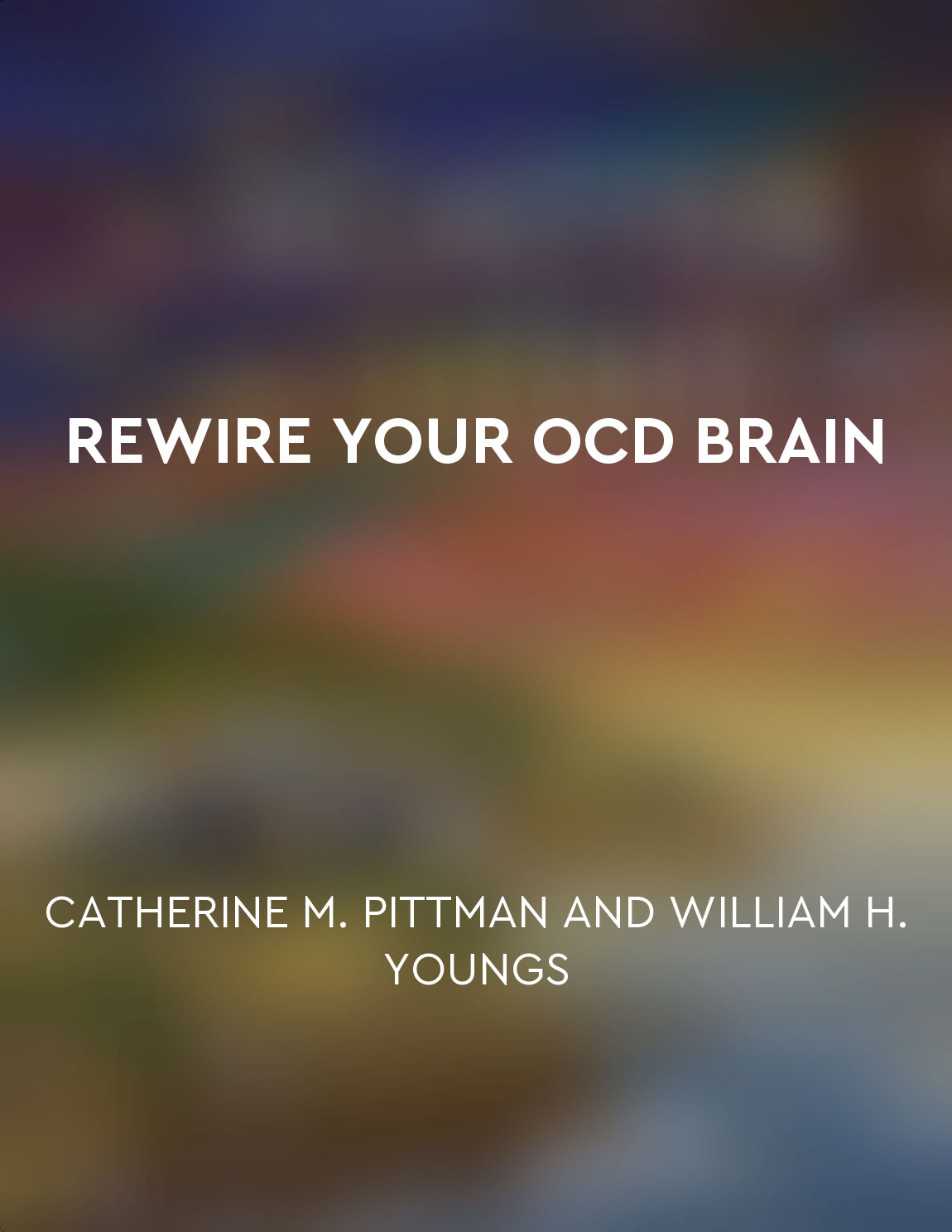Audio available in app
Utilize cognitivebehavioral therapy techniques from "summary" of REWIRE YOUR OCD BRAIN by CATHERINE M. PITTMAN AND WILLIAM H. YOUNGS
Cognitive-behavioral therapy techniques are a key component of treating OCD. These techniques are based on the idea that our thoughts, feelings, and behaviors are all interconnected. By targeting these connections, we can begin to change the way we think and act in response to our obsessions and compulsions. One common technique used in cognitive-behavioral therapy is cognitive restructuring. This involves identifying and challenging negative thought patterns that contribute to OCD symptoms. By replacing these negative thoughts with more realistic and balanced ones, we can begin to change the way we perceive our obsessions and compulsions. Another important technique is exposure and response prevention. This involves gradually exposing ourselves to situations that trigger our OCD symptoms, while resisting the urge to engage in compulsive behaviors. Over time, this can help us learn that our fears are unfounded and that we can cope with these situations without resorting to compulsions. Mindfulness techniques are also commonly used in cognitive-behavioral therapy for OCD. Mindfulness involves staying present in the moment and observing our thoughts and feelings without judgment. By practicing mindfulness, we can begin to distance ourselves from our OCD symptoms and develop a greater sense of control over our thoughts and behaviors.- Cognitive-behavioral therapy techniques are highly effective in treating OCD by helping us change the way we think, feel, and behave in response to our symptoms. By incorporating these techniques into our treatment plan, we can begin to rewire our brains and break free from the cycle of obsessions and compulsions.


